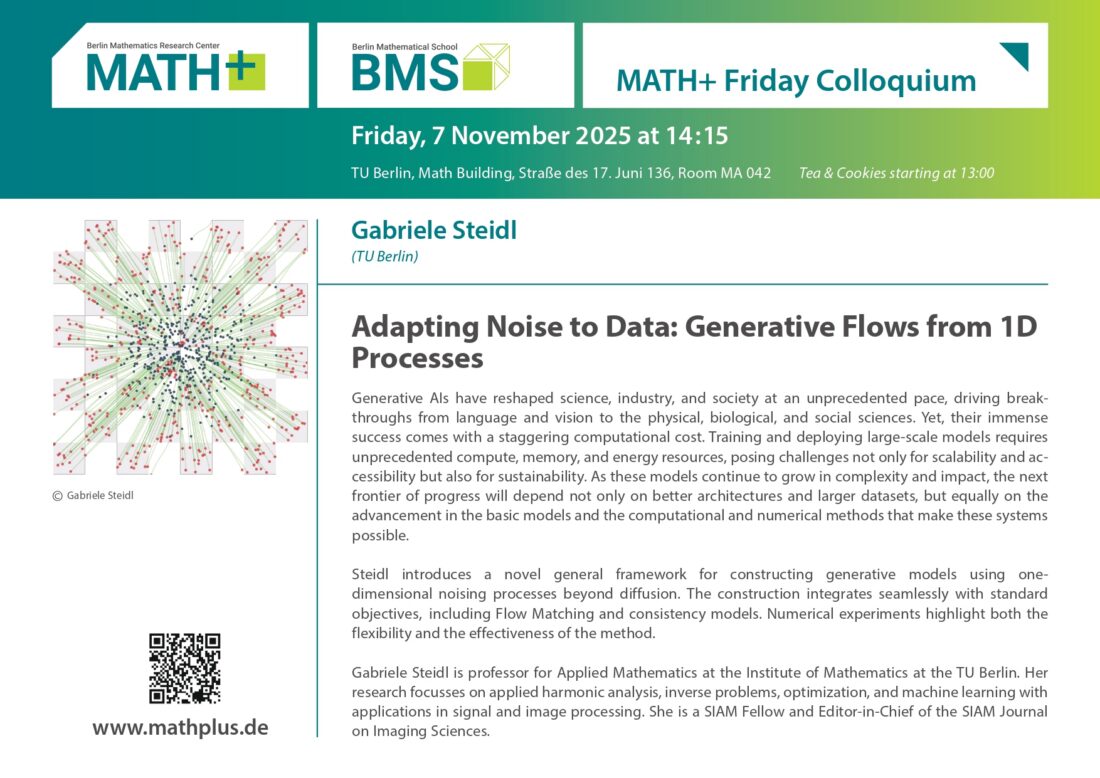7 November – Gabriele Steidl: Adapting Noise to Data: Generative Flows from 1D Processes
Generative AIs have reshaped science, industry, and society at an unprecedented pace, driving breakthroughs from language and vision to the physical, biological, and social sciences. Yet, their immense success comes with a staggering computational cost. Training and deploying large-scale models requires unprecedented compute, memory, and energy resources, posing challenges not only for scalability and accessibility but also for sustainability. As these models continue to grow in complexity and impact, the next frontier of progress will depend not only on better architectures and larger datasets, but equally on the advancement in the basic models and the computational and numerical methods that make these systems possible.
Steidl introduces a novel general framework for constructing generative models using one-dimensional noising processes beyond diffusion. The construction integrates seamlessly with standard objectives, including Flow Matching and consistency models. Numerical experiments highlight both the flexibility and the effectiveness of the method.
Gabriele Steidl is professor for Applied Mathematics at the Institute of Mathematics at the TU Berlin. Her research focusses on applied harmonic analysis, inverse problems, optimization, and machine learning with applications in signal and image processing. She is a SIAM Fellow and Editor-in-Chief of the SIAM Journal on Imaging Sciences.


